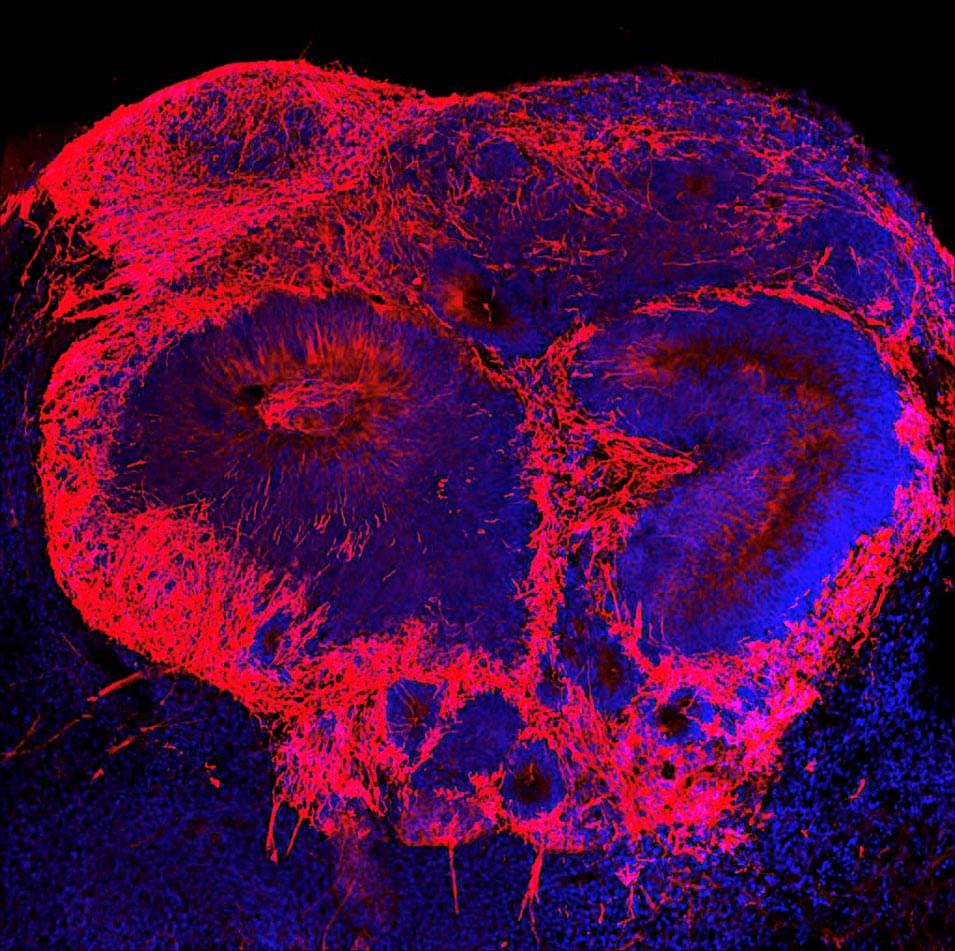Multiple changes in brain cells during the first month of embryonic development may contribute to schizophrenia later in life, according to a new study by Weill Cornell Medicine investigators.
The researchers, whose study was published in Molecular Psychiatry, used stem cells collected from patients with schizophrenia and people without the disease to grow 3-dimensional “mini-brains” or organoids in the laboratory. By comparing the development of both sets of organoids, they discovered that a reduced expression of two genes in the cells stymies early development and causes a shortage of brain cells in organoids grown from patient stem cells.
“This discovery fills an important gap in scientists’ understanding of schizophrenia,” said senior author Dr. Dilek Colak, assistant professor of neuroscience at the Feil Family Brain and Mind Institute and the Center for Neurogenetics at Weill Cornell Medicine. Symptoms of schizophrenia typically develop in adulthood, but postmortem studies of the brains of people with the disease found enlarged cavities called ventricles and differences in the cortical layers that likely occurred early in life.
